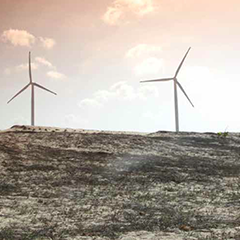Africa’s impressive economic growth in recent years, reflecting a growing population as well as rapid economic development and diversification, calls for massive investments to ensure sufficient future energy infrastructure and supply. The newly-identified ‘Clean Energy Corridor’ has been earmarked as a possible source of this supply – with significant prospects for wind energy. We take a look…
The initiative to create the Africa Clean Energy Corridor, launched in 2013 at the Third Assembly of the International Renewable Energy Agency (IRENA), aims to accelerate the expansion of renewable electricity production, taking advantage of the continent’s enormous untapped potential and helping to sustain future growth. The continent can supply both its concentrated urban centres and its remotest, most dispersed rural areas with clean, sustainable energy, based on its indigenous renewable resources.
The initiative, spanning the length of the continent from Egypt to South Africa, links more than 20 countries in a combined endeavour to optimise their grid infrastructure and operations to support high shares of renewable energy. As the costs of renewable energy technologies continue falling, the economic logic for the envisioned African energy transition becomes even more compelling.
And yet significant barriers remain: an inefficient and under-financed power sector, distorted prices, inadequate access to finance, and the lack of up-to-date information and suitable skills. Rural and urban areas require different, yet parallel, solutions. However, Africa today is well positioned to leapfrog ahead with the latest on- and off-grid renewable energy solutions.
One of the major developmental challenges for Africa in the twenty-first century is to achieve universal access to, and efficient utilisation of, adequate, affordable, clean, safe, reliable, secure and sustainable energy services. This will facilitate increased economic productivity and thereby reduce endemic poverty and improve the quality of life of the continent’s rapidly growing population. At present, an estimated two-thirds of the population has no access to electricity and clean cooking fuels.



























